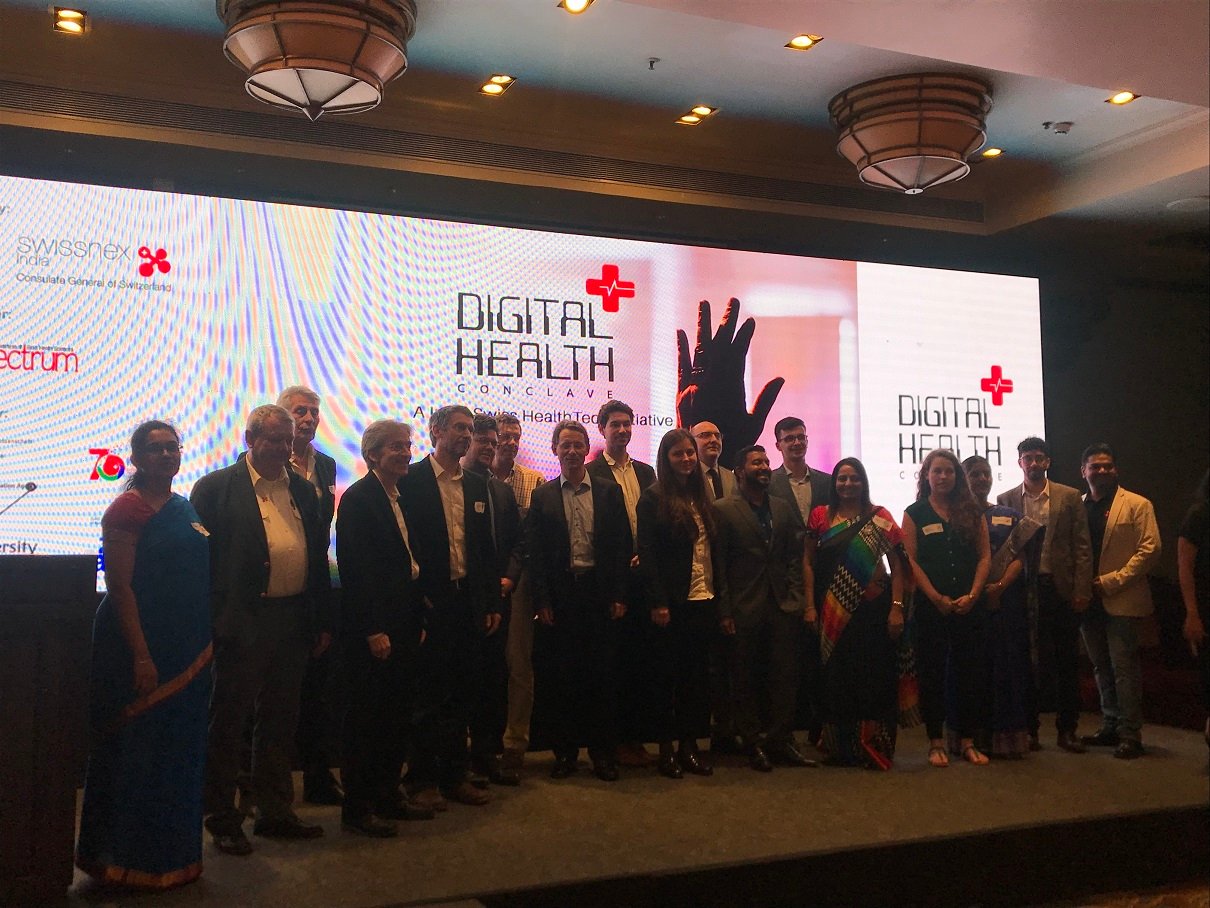Swiss-Indian exchange of innovative healthcare ideas: DHC 2019
April 08, 2019 | Monday | News
Selected representatives of the Swiss and Indian healthcare sector presented their vision for enhancing the quality of patient-hospital interaction and healthcare delivery at the conclave.
Indo-Swiss HealthTech Conclave 2019 on Digital Health was recently conducted in Bengaluru. The Digital Health Conclave (DHC) 2019 put forward a platform curated by swissnex India to showcase cutting-edge technologies and innovations in healthcare from Switzerland and India.
Selected representatives of the Swiss and Indian healthcare sector presented their vision for enhancing the quality of patient-hospital interaction and healthcare delivery at the conclave.
“With this Indo-Swiss Digital Health Conclave, we are establishing a forum for exchange and inspiration on the latest trends, opportunities and challenges with regard to various aspects of digital health. Switzerland is known to be an innovation hub, particularly in medical technologies and pharmaceutical research, while India’s healthtech sector is changing rapidly, creating many opportunities for both countries to collaborate in education, research and innovation”, said Sebastien Hug, CEO of swissnex India and Consul General of Switzerland in India.
Prof. Dr. med. Andreas Trojan, Founder, Consilium shared information about the newly developed smartphone healthcare app referred to as Consilium which is currently under validation in Switzerland. Prof Trojan plans to launch the service soon in Singapore and India. Joining him in the same session, Randy Ramin-Wright, International Business Director, Clinerion spoke about his plans of introducing a Real World Data ecosystem in India very soon. “Traditional trial countries in Europe and North America are in high demand and may be somewhat saturated, with clinical trials competing for the same patient population. However, regions like Asia offer attractive untapped potential. Moving East has become a highly effective way for pharmaceutical companies to streamline operations and concentrate on their core activities. However, the local infrastructure and cultural understanding of emerging regions can present formidable barriers”, Ramin-Wright pointed out.
Highlighting the implementation of technology in the area of diagnostics, Prof Hans-Peter Beck, Head of Molecular Parasitology-Epidemiology Unit, Swiss Tropical and Public Health Institute elaborated upon the potential of artificial intelligence (AI) in improving malaria detection. “For all our efforts to control malaria, diagnosing it in many parts of the world still requires counting malaria parasites under the microscope on a glass slide smeared with blood. Now an artificial intelligence program can do it more conveniently. We are currently conducting studies in Odisha in India and few parts of Africa so that we can implement the AI technology for malaria detection in these parts”, Prof Beck mentioned.
Clemedi is another player in the field of digital health at Switzerland who has developed a TB diagnostic test based on machine learning. “We wish to tailor our test for the Indian market by collaborating with the right partners. We are planning to conduct multi-centre studies in countries such as India, South Africa and Eastern Europe where there is high prevalence of drug resistant strains of TB”, said Dr Prajwal, Founder & CSO, Clemedi.
The conclave also saw interesting presentations made by the healthcare experts in India. Dr Sailesh Mohan, Joint Director, Public Health Foundation of India (PHFI) talked about the various health technologies developed by PHFI keeping affordability in mind as the prime criteria.
An interactive session between Dr Paul C Salins, Senior VP- NH Narayana Health; Medical Director- Mazumdar Shaw Medical Centre and Dr Shravan Subramanyam, MD, Roche Diagnostics India was quite engaging as the experts spoke about the various challenges facing the healthcare system in India. “India needs to scale up and skill up the healthcare system. The trend is now shifting from treatment to prevention. We are at a pivotal moment in healthcare history. An unprecedented convergence of medical knowledge, technology and data science is revolutionising patient care. In order to ensure timely screening, diagnosis, treatment and even prevention of diseases, we need to ensuring the right treatment for the right patient at the right time”, said Dr Shravan.









